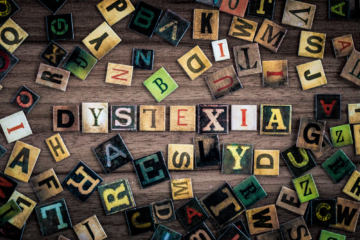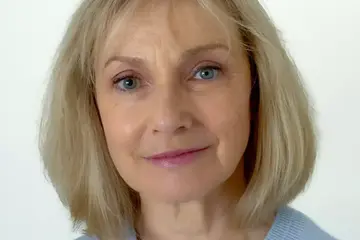Amanda's story: I like to look at things in a different way
Amanda Rayner
I like to look at things in a different way. When I was a child I used to love doing the logic puzzles in my grandma’s magazines; they were for adults, but I loved doing them and generally completed them with ease. Despite my abilities with things like that, there were other things that I’ve always found difficult to grasp.
I can get quite far into a movie without realising that I’ve actually seen it before for example. Or I often need to read work two of three times to ensure I actually register what is being said; reading for comprehension can be a slow and frustrating process! At university, one maths module defeated me, no matter how much I studied and revised. When it comes to facts, a name or date will be familiar, but I can’t always recall the context or what makes it important.
Until last year, I put this down to being forgetful. Until last year, I thought I was just a bit stupid — a horrible belief to have internalised since childhood. Even the successes I’ve had in my career weren’t enough to shake that feeling that there was something ‘not quite right’ with me, and that I was a little ‘slow’. In fact, it kept me from feeling proud of my achievements, and I lost sight of the things I was good at.
It was only when I heard a colleague describe their experience of dyslexia and some of what they were saying felt familiar to me, that I realised I owed it to myself to figure out what was going on.
I took the assessment, and I was diagnosed with dyslexia in October 2021. It was a late diagnosis, but the overwhelming feeling I had was one of relief that I wasn’t ‘broken’, but simply thought differently. The world has changed a lot since I was at school. Today, teachers are trained to spot and support neurodiversity (or difference). When I was at school, there was still a huge stigma, and things were only investigated if you really struggled and were failing early on. My real struggles began during my A’ Levels, but by then I think it was thought that if I’d had learning differences, it would have already been picked up, so it couldn’t be that. I think my teachers, and I just thought I wasn’t working hard enough, or simply, that I wasn’t good enough.
There is so much more awareness and support for children with diagnosed neurodistinct conditions, but there is also support for adults too. That is where coaching can play such a vital role.
I’ve been in the Royal Navy for 17 years. Happily, people in the Royal Navy are quite familiar with coaching. Coaching training is available throughout the force and I was lucky enough to take part in some last year.
In this piece, I want to share my experience of the benefits of coaching for those with neurodistinct conditions and also what coaches and leaders need to know about neurodiversity. In addition, I’ve included a little about some of the steps I’ve taken in my organisation to make coaching and neurodiversity fit together.
The first thing to say is that coaching conversations are inquiring conversations; they are about asking questions and supporting the coachee in their own self-discovery. As I said, I thought from childhood that I was just a bit stupid.; a coaching conversation can sensitively inspect, challenge and help to reverse those limiting self-beliefs.
Today, I can say that I like the way my mind works. I realise much more clearly just how my neurodiversity has proved to be a strength. In the Royal Navy, it is valued, and most importantly, I am valued. I can cut through the chaff, the distraction, and I see things through a different lens. I’m able to identify an issue rapidly, when other people are caught up in the details, and by seeing things from a different perspective, I bring alternative approaches to problems. Coaching is a powerful way for people to better understand their own strengths and areas in which they may struggle, supporting the individual on a journey of building on their own abilities.
One of my biggest takeaways from my own coaching experience was about giving myself the freedom to be me. For example, at work, I was working on a strategy and I automatically tried to replicate what a successful peer had done. For me, she and her work represented ‘what good looked like’, so if I wanted to succeed, I felt I needed to replicate that. Coaching helped me to realise I don't need to squash myself into the shape and size of another. It helped me to understand that progress is a matter of perspective; it isn’t just a measure of one thing. Progress was also working on my learning network, drawing knowledge in, and sharing my own knowledge. The coaching experience was liberating, and I felt as though I didn’t need to mask who I was; for the first time, I feel good enough.
When it comes to advice for leaders, language is so important. I came across the quote: ‘People with neurodistinct conditions are specialist thinkers’. It’s so powerful to me, and I think something we could all do with reflecting on. I've been working in training and the people profession for many years and knowing your people, and their specialisms is so important. Once you understand where someone’s strength lies, and you enable them to be themselves and use their strengths, you unlock the power of the team.
An analogy I use is this: the RN is made up of many different capabilities (provided by Frigates, Destroyers, Submarines, Aircraft, Royal Marines, Royal Fleet Auxiliary for example); each unit or team has their unique strengths and come together to make us the fighting force we are. But you wouldn’t expect a frigate to do the work of a destroyer, and nor would you expect an aircraft carrier to work in the same way as an auxiliary vessel. Simply put, you understand and respect that each unit or team performs its own role brilliantly, and you wouldn’t expect it to excel in another field. They work brilliantly independently but bring them together and what they can achieve is immense. It’s the same in any organisation and we need to mirror this diverse capability; we need people who think in different ways, who challenge the normal ways of doing business and to drive forward innovation. You find out people’s stories, the way their mind works and learns, and what they need to perform at their best. Then, you can support them and enable them to work in a way that advances them and your organisation.
Coaching can help people to create psychologically safe environments in which everyone is free to be who they truly are. Being safe is so important. As line managers, we want to provide psychologically safe environments for our people, but sometimes we lack the practical know-how. Coaching skills can certainly help with this. You don’t need to be neurodistinct to benefit from coaching around neurodiversity. Coaching can be used to explore your management styles, examine how you can learn more about your team, empower them and give them the freedom to achieve in their own way. We all have things to learn, and we all need the strength that comes from having a cognitively diverse workforce.
In my next role, following on from setting Royal Navy learning and development policy, I will continue to encourage coaching practice and employ coaching techniques. Along with this, I will continue trying to raise awareness of neurodistinct conditions such as ADHD, Autism and Dyslexia. We need to be agile and innovative to keep ahead of our adversaries and maximising the unique skills of our cognitively diverse workforce is key to achieving that.
Finally, and perhaps most importantly, we need to break down the stigma around neurodistinct conditions, and the language that coaches and leaders use is so important in achieving that cultural change. Some people still think of neurodiversity as a learning difficulty; to conceive of these differences as a difficulty is very limiting. We need to embrace differences and we will all grow from embracing those differences.
Remembering that these are differences, rather than difficulties shifts perspective considerably. Perhaps think ‘differently able, not less able’.




